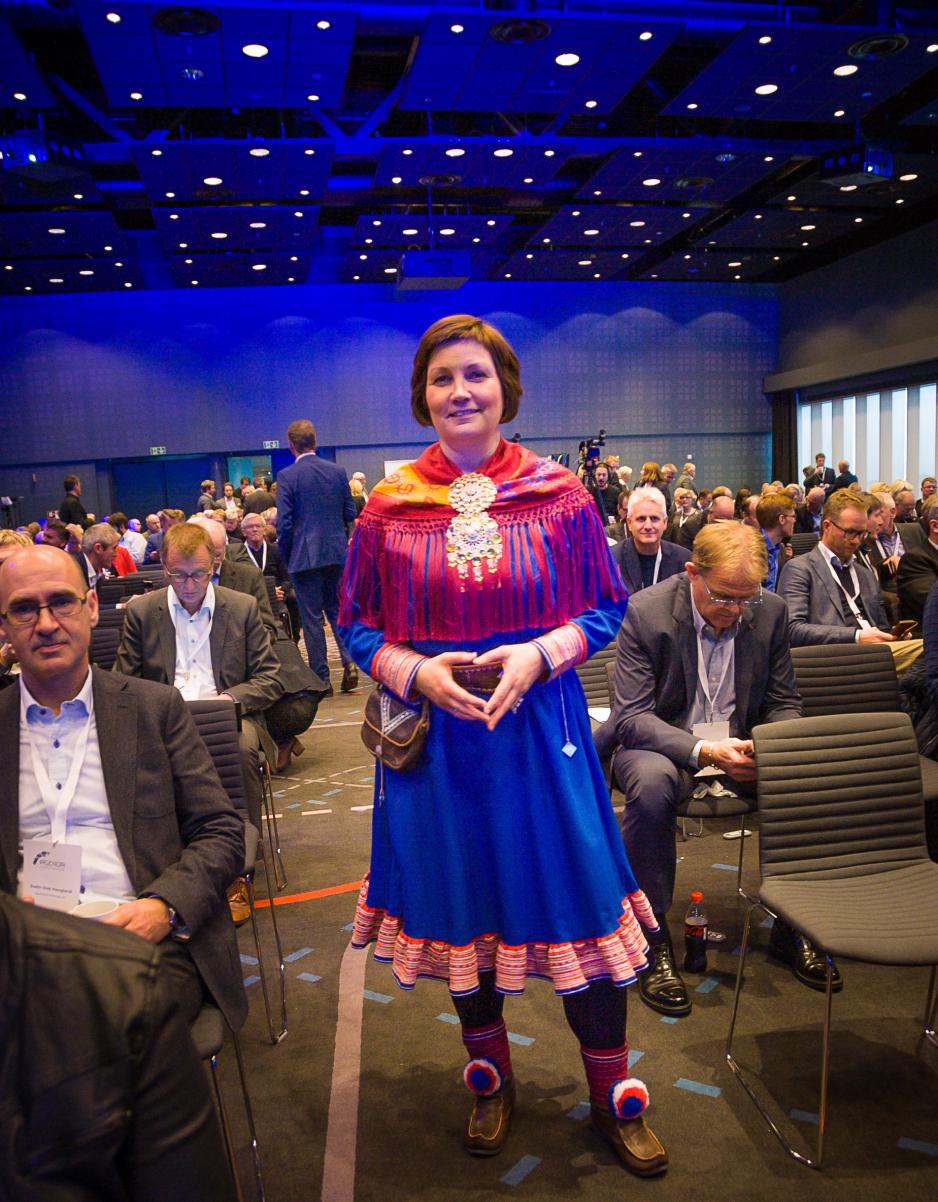Change of power in the Sami Parliament – Keskitalo had to go

The Norwegian Sami National Association (NSR) did not manage to acquire a majority for its budget proposal. Hence, its position is taken over by the Labor party’s Sami Parliament group, together with Árja and the Conservatives. Vibeke Larsen (Labor) took over as new president of the Sami Parliament last Friday.
The Norwegian Sami National Association (NSR) did not manage to acquire a majority for its budget proposal. Hence, its position is taken over by the Labor party’s Sami Parliament group, together with Árja and the Conservatives. Vibeke Larsen (Labor) took over as new president of the Sami Parliament last Friday.
The new Council of the Sami Parliament consists of Lars Filip Paulsen (Conservatives), Mariann Wollmann Magga (Labor), Inger Eline Eriksen (Árja), Sami Parliament President Vibeke Larsen (Labor) and Ronny Wilhelmsen (Labor).
- The formal constitution and allocation of responsibilities will only be clear next week, Mariann Wollmann Magga (Labor) says.
Distrust
Last week’s dramatic joint session of the Sami Parliament peaked during the budget negotiations, when the proposal from Árja and the Conservatives reached a majority. The proposal from NSR was rejected, and was followed by a debate about whether or not the party could stay in power, NRK Sapmi reports.
After the budget negotiations Vibeke Larsen of the Labor Party expressed lack of confidence in Aili Keskitalo and NSR. The lack of confidence was further rooted in the NSR voting for the Labor Party’s proposal, which was eventually enacted. According to the Norwegian broadcaster NRK, Larsen asked whether the majority of the Sami Parliament could support a Council that is such a turncoat. The vote of no confidence was approved, after which Aili Keskitalo stated to the Parliament that she would finish her role as President of the Sami Parliament.
Several parties point to the Council’s setting its sail to every wind as the reason for its vote of no confidence, which effectively lead to a change of government in the Sami Parliament.
Not generally opposed to mining
The Sami Parliament group of the Labor Party has announced a new direction for the Sami Parliament’s policy when they take over. Mariann Wollmann Magga explains that they will work for a more transparent and inclusive Sami Parliament.
- We want to connect better with the people, she says. Magga also refers to the budget that was approved last Thursday, where they have moved to ensure the use of two-language solutions and also provide economic support for increased salaries and inflation for the institutions in question.
- The previous Sami Parliament has demonstrated a clear opposition to the mining industry and not approved of the Minerals Act. Where do you stand on this?
- We agree with the previous Sami Parliament that the Minerals Act does not satisfy public international law. However, we are not opposed to mining in general, Magga says.
Short-term ambitions
The new Sami Parliament Council will have a rather brief period of governance, as there is a new election the coming autumn. The Labor Party has clearly signaled that it will want to assume power following the upcoming election, and its candidate for the presidency is Helga Pedersen, who can boast a distinguished career in the Norwegian Parliament until the present day. Whether or not it was wise to make a move for power at this stage, remains to be seen.
- We have adjusted our ambitions to the brief period that is left until the election, says Magga.
In its inaugural address, the Labor Party’s Sami Parliament group says they will work to enact Sami self-determination according to internationally recognized norms for indigenous peoples’ right to self-determination, in order to ensure that the developing of the Sami society happens in accordance with the Sami people’s own needs, values and priorities. The new Council also wants to work to further joint actions and cooperation in and for the Sami society. They want to strengthen joint actions and cooperation between the Sami Parliament and the local municipalities, the counties, the government and other relevant organs.
Read article in Norwegian here.
